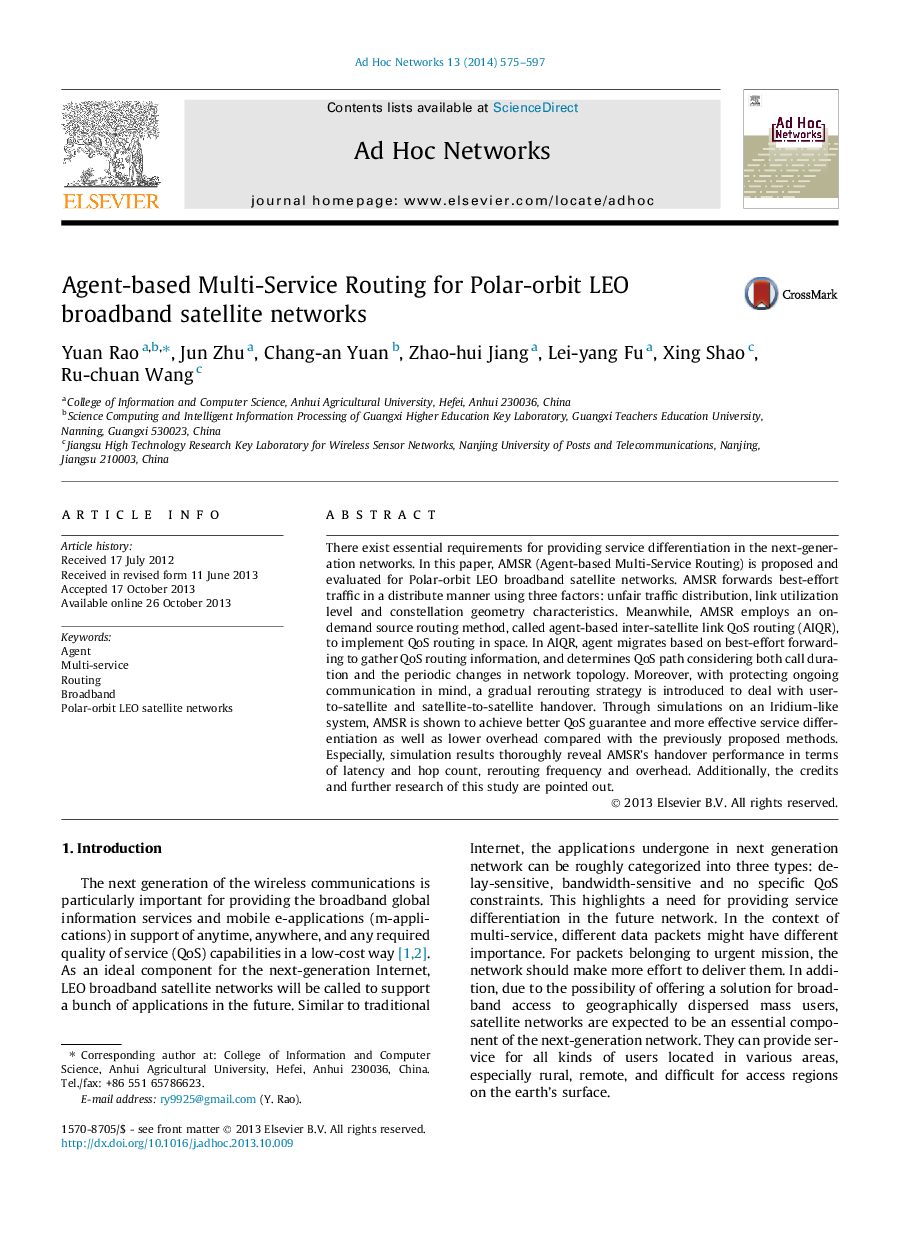| Article ID | Journal | Published Year | Pages | File Type |
|---|---|---|---|---|
| 448033 | Ad Hoc Networks | 2014 | 23 Pages |
There exist essential requirements for providing service differentiation in the next-generation networks. In this paper, AMSR (Agent-based Multi-Service Routing) is proposed and evaluated for Polar-orbit LEO broadband satellite networks. AMSR forwards best-effort traffic in a distribute manner using three factors: unfair traffic distribution, link utilization level and constellation geometry characteristics. Meanwhile, AMSR employs an on-demand source routing method, called agent-based inter-satellite link QoS routing (AIQR), to implement QoS routing in space. In AIQR, agent migrates based on best-effort forwarding to gather QoS routing information, and determines QoS path considering both call duration and the periodic changes in network topology. Moreover, with protecting ongoing communication in mind, a gradual rerouting strategy is introduced to deal with user-to-satellite and satellite-to-satellite handover. Through simulations on an Iridium-like system, AMSR is shown to achieve better QoS guarantee and more effective service differentiation as well as lower overhead compared with the previously proposed methods. Especially, simulation results thoroughly reveal AMSR’s handover performance in terms of latency and hop count, rerouting frequency and overhead. Additionally, the credits and further research of this study are pointed out.
